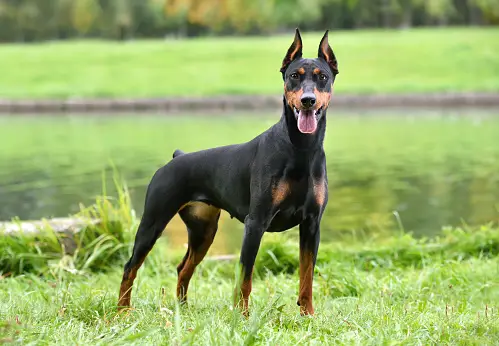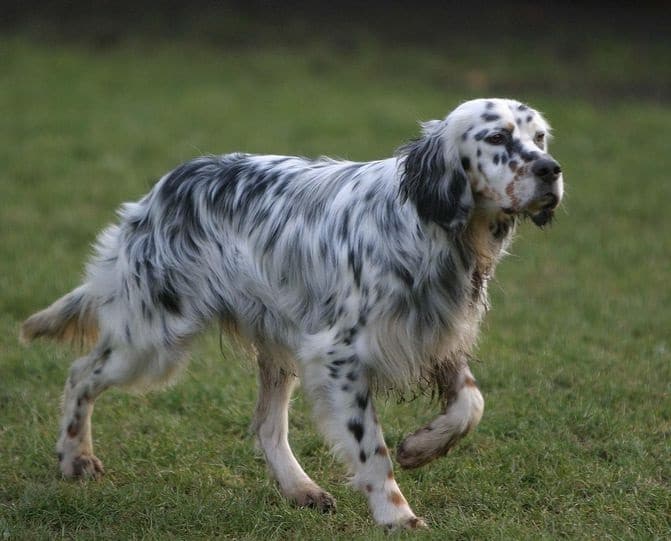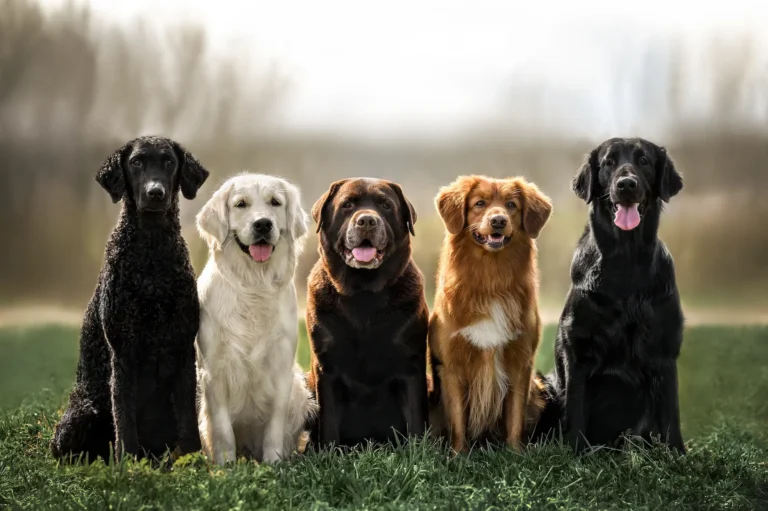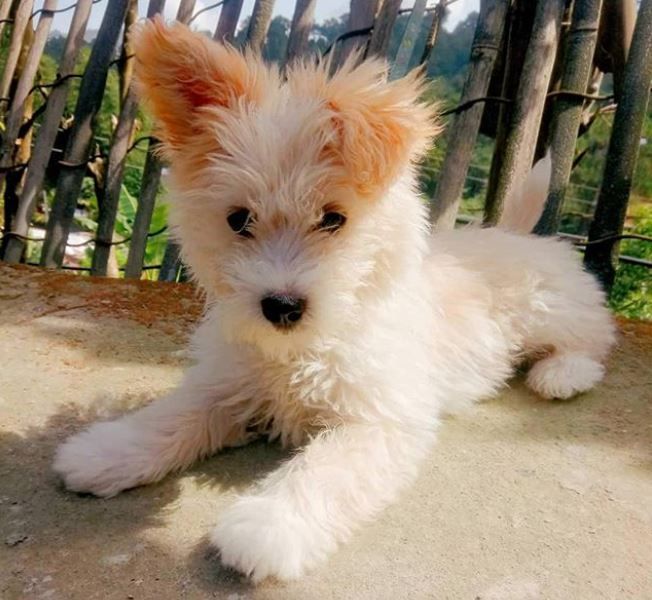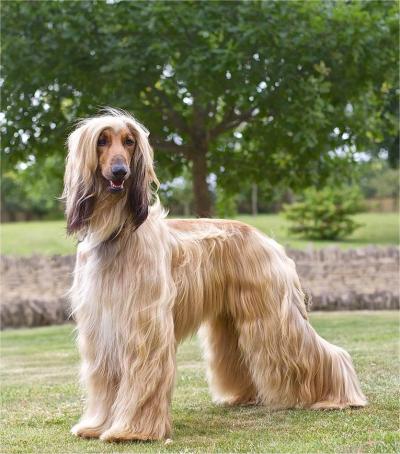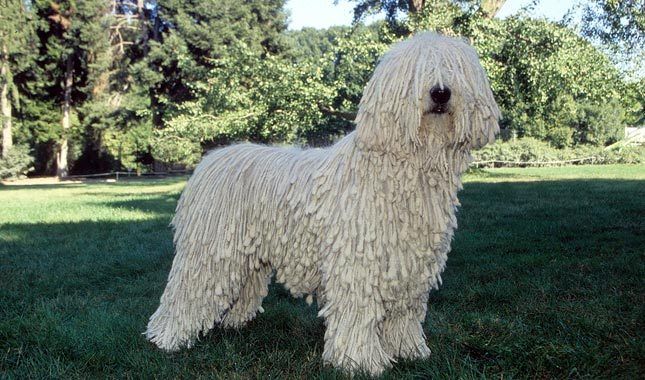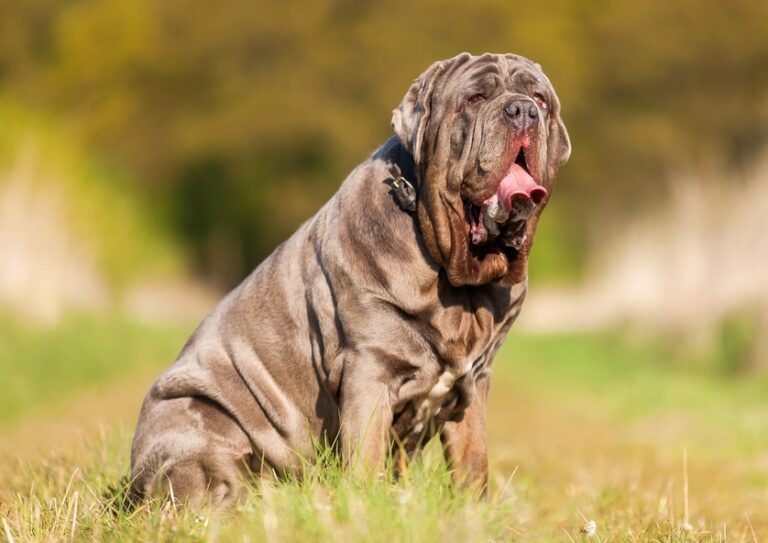Doberman Pinschers are highly intelligent and loyal working dogs that have gained popularity worldwide. Known for their sleek appearance and strong physique, these dogs are often used in various roles such as police and military work, search and rescue operations, and as therapy dogs. In addition to their impressive working abilities, Doberman Pinschers are also known for their loyalty and devotion to their owners, making them excellent family pets. If you are considering adding a Doberman Pinscher to your family or looking to learn more about this remarkable breed, this article will provide you with valuable insights into their characteristics, temperament, training needs, and more.
History and Origin of Doberman Pinschers
Karl Friedrich Louis Dobermann: The Creator of the Doberman Pinscher Breed
The Doberman Pinscher breed was developed in Germany by a tax collector named Karl Friedrich Louis Dobermann in the late 19th century. During his time as a tax collector, Dobermann faced numerous risks and required a loyal and protective companion to accompany him on his rounds. With a desire to create the perfect working dog, he selectively bred various dog breeds to produce a breed that possessed both intelligence and loyalty.
Early Roles of Doberman Pinschers as Working Dogs
Initially, Doberman Pinschers were primarily used as guard dogs and for personal protection. Due to their exceptional loyalty, fearlessness, and natural instincts, they quickly gained popularity among police and military forces. Their remarkable intelligence and trainability made them ideal for tasks such as tracking, search and rescue missions, and serving as messenger dogs during wartime.
Evolution of the Doberman Pinscher Breed over Time
Over the years, the Doberman Pinscher breed has undergone significant evolution. Initially, they had a more aggressive temperament, which was necessary for their protective roles. However, as their roles expanded beyond security and protection, breeders began to focus on tempering their aggression while maintaining their intelligence and loyalty.
Selective breeding programs were implemented to refine the breed’s character, resulting in a more well-rounded and versatile dog. Modern Doberman Pinschers are known for their exceptional intelligence, loyalty, and versatility in various roles such as therapy dogs, search and rescue dogs, and competitive obedience dogs. With their confident and alert nature, they continue to excel in working roles, while also being cherished as loving family pets.
Doberman Pinscher breed has a rich history and origin tied to the efforts of Karl Friedrich Louis Dobermann. Their early roles as working dogs and subsequent evolution over time have shaped them into the intelligent and loyal dogs we know today. Whether it’s their historical significance or their present-day versatility, Doberman Pinschers continue to captivate dog enthusiasts worldwide.
Characteristics and Temperament of Doberman Pinschers
Doberman Pinschers are known for their distinct characteristics and unique temperament. These dogs are highly intelligent, loyal, and have a strong work ethic. With their sleek and muscular build, they possess a distinctive physical appearance that sets them apart from other breeds. Their intelligence and trainability make them excellent working dogs, while their loyal and protective nature makes them ideal companions and family pets.
Physical Attributes and Appearance of Doberman Pinschers
Doberman Pinschers have a striking physical appearance that commands attention. They are medium to large-sized dogs with a well-muscled and compact body. Their coat is short and smooth, usually coming in colors such as black, blue, red, or fawn. One of the most distinguishing features of Dobermans is their elegant and regal posture, with a proud and alert expression. Their ears are often cropped to enhance their alertness and give them a more distinctive look. Overall, this breed exudes strength, athleticism, and grace.
Intelligence and Trainability of Doberman Pinschers
Doberman Pinschers are widely recognized for their high level of intelligence. They are quick learners and have a natural ability to understand and follow commands. This breed is known for being highly trainable and excels in various activities such as obedience training, agility, and even advanced tasks like search and rescue. Their intelligence and eagerness to please their owners make them an ideal choice for those seeking a dog that can be easily trained and perform complex tasks.
Loyal and Protective Nature of Doberman Pinschers
Doberman Pinschers are renowned for their unwavering loyalty and protective instincts towards their families. They form strong bonds with their owners and are fiercely devoted to them. This breed is known to be highly protective and will go to great lengths to defend their loved ones when they sense a threat. Despite their imposing appearance, Dobermans are typically gentle and affectionate with their families, making them excellent companions and guardians. Their loyalty and protective nature make them an excellent choice for individuals or families looking for a loving and devoted four-legged friend.
In conclusion, Doberman Pinschers possess a unique combination of characteristics and temperament that sets them apart as intelligent and loyal working dogs. With their distinctive physical attributes, they not only catch the eye but also exude strength and grace. Their intelligence and trainability make them versatile working dogs, capable of excelling in various tasks. Additionally, their loyalty and protective nature make them excellent companions and guardians, ensuring the safety and well-being of their families.
Working Abilities and Uses of Doberman Pinschers
Police and Military Roles of Doberman Pinschers
Doberman Pinschers have long been revered for their exceptional working abilities, making them a popular choice for various roles in law enforcement and the military. These intelligent and loyal dogs possess a range of qualities that make them well-suited for these demanding positions.
In police work, Doberman Pinschers are often used in tasks such as patrol duty, search and apprehension of suspects, and narcotics detection. Their keen sense of smell and high energy levels enable them to excel in tracking down criminals and detecting illegal substances. With their imposing presence and strong protective instincts, these dogs serve as a valuable asset in maintaining public safety and order.
Similarly, in the military, Doberman Pinschers have proven to be valuable assets. They are utilized in roles such as bomb detection and military patrol duty. Their agility, endurance, and trainability make them well-suited for these tasks. The Doberman’s ability to quickly learn and adapt to new situations, combined with their unwavering loyalty, makes them an ideal choice for military operations.
Search and Rescue Capabilities of Doberman Pinschers
Doberman Pinschers have demonstrated remarkable capabilities in search and rescue operations. Their intelligence, agility, and natural instincts enable them to navigate difficult terrains and locate missing persons efficiently.
In search and rescue missions, Doberman Pinschers are trained to track scents, follow trails, and locate individuals who may be trapped or lost. Their acute sense of smell and exceptional problem-solving abilities allow them to identify and assess potential dangers in hazardous environments. These dogs are highly adaptable and can work effectively in various conditions, including natural disasters and wilderness settings.
The Doberman’s strong work ethic and unwavering determination make them a valuable asset in search and rescue teams. Their loyalty and willingness to work collaboratively with their handlers contribute to their success in saving lives and providing much-needed assistance during critical situations.
Therapy and Service Dog Work by Doberman Pinschers
Beyond their working abilities in law enforcement and search and rescue, Doberman Pinschers also excel in therapy and service dog roles. Their gentle and affectionate nature, combined with their intelligence and trainability, make them well-suited for providing emotional support and assistance to individuals in need.
As therapy dogs, Doberman Pinschers are known for their ability to provide comfort and companionship to people in hospitals, nursing homes, and other healthcare facilities. They have a calming presence and can help alleviate stress and anxiety in patients. These dogs are often trained to perform specific tasks, such as visiting patients, participating in animal-assisted therapy sessions, and providing emotional support to individuals with various physical and mental health conditions.
In service dog roles, Doberman Pinschers can be trained to assist individuals with disabilities. They can be taught to perform tasks such as opening doors, retrieving objects, and providing stability and balance to their handlers. Their intelligence and willingness to learn enable them to adapt to the specific needs of their owners, making their daily lives more manageable and enhancing their independence.
Doberman Pinschers possess exceptional working abilities that make them highly versatile in a range of roles. From their contributions in law enforcement and the military to their valuable service in search and rescue operations, as well as their ability to provide therapy and assistance to those in need, these intelligent and loyal dogs continue to prove their worth as outstanding working companions.
Health and Care for Doberman Pinschers
Common Health Issues in Doberman Pinschers
Doberman Pinschers are generally a healthy breed, but like any other dog, they can be prone to certain health issues. It is essential for Doberman owners to be aware of these common health problems to ensure their pets lead a happy and healthy life.
- Dilated Cardiomyopathy (DCM): This is a heart condition that affects Doberman Pinschers more than any other breed. DCM causes the heart muscle to weaken, leading to an enlarged heart and possible heart failure. Regular check-ups with a veterinarian and early detection of symptoms can help manage this condition effectively.
- Hip Dysplasia: Hip dysplasia is a common joint disorder in large dog breeds, including Doberman Pinschers. This condition occurs when the hip joint doesn’t develop properly, leading to discomfort, pain, and mobility issues. To prevent hip dysplasia, it is crucial to provide a balanced diet, maintain a healthy weight, and avoid excessive jumping or strenuous exercise during the puppy’s growth phase.
- Von Willebrand’s Disease (vWD): This is a hereditary bleeding disorder that affects the blood’s ability to clot. Doberman Pinschers are more susceptible to vWD compared to other breeds. It is crucial to have your Doberman tested for vWD before any surgical procedures and inform the veterinarian about their condition to ensure appropriate medical care.
Proper Nutrition and Exercise for Doberman Pinschers
To maintain the overall health and well-being of Doberman Pinschers, proper nutrition and regular exercise are essential. Here are some guidelines for providing optimal nutrition and exercise for your Doberman:
- Balanced Diet: Doberman Pinschers require a well-balanced diet that is high in protein and low in fat. Choose a premium-quality dog food specifically formulated for large breeds or working dogs. Ensure the food contains essential nutrients like omega-3 fatty acids, glucosamine, and antioxidants to support joint health and overall vitality.
- Portion Control: Avoid overfeeding your Doberman Pinscher, as they have a tendency to gain weight easily. Follow the feeding guidelines provided by the dog food manufacturer and monitor your dog’s body condition regularly. Adjust the portion sizes based on their activity level, age, and overall health.
- Regular Exercise: Doberman Pinschers are an active breed that requires regular exercise to remain physically and mentally stimulated. Engage them in daily activities such as brisk walks, jogging, play sessions, or agility training. Aim for at least 60 minutes of exercise each day, divided into multiple sessions, to keep them fit and prevent boredom.
Regular Grooming and Veterinary Care for Doberman Pinschers
Proper grooming and regular veterinary care are crucial for maintaining the health and appearance of Doberman Pinschers. Here are some essential aspects of grooming and veterinary care for your Doberman:
- Coat Care: Doberman Pinschers have a short and sleek coat that requires minimal grooming. Regular brushing with a soft bristle brush helps remove loose hair and keeps their coat shiny. Bathing should be done as needed, using a gentle dog shampoo to avoid drying out their skin.
- Nail Trimming: Trim your Doberman’s nails regularly to prevent them from becoming too long and causing discomfort or potential injuries. Use a dog nail trimmer or seek professional help if you’re unsure how to properly trim them.
- Ear Cleaning: Doberman Pinschers are prone to ear infections due to their floppy ears. Clean their ears weekly using a veterinarian-recommended ear cleaning solution and cotton balls. Avoid inserting anything into the ear canal to prevent injury.
- Regular Veterinary Check-ups: Schedule regular visits to the veterinarian for comprehensive health check-ups, vaccinations, and preventive treatments. Regular check-ups help detect any underlying health issues early on, ensuring prompt and effective treatment.
Remember, being proactive in the health and care of your Doberman Pinscher is essential for their overall well-being. By providing proper nutrition, exercise, grooming, and veterinary care, you can ensure that your Doberman remains a happy and healthy member of your family.
Doberman Pinschers are highly intelligent and loyal working dogs. Their natural instincts make them excellent protectors and they are known for their dedication to their families. With proper training and socialization, Dobermans can become well-rounded companions and excel in various tasks such as search and rescue, therapy work, and obedience competitions. Their intelligence and loyalty make them a popular choice for families and individuals seeking a devoted and reliable canine companion.

